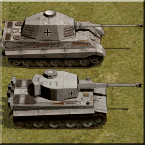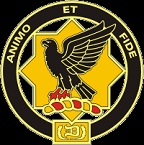miral
Posts: 170
Joined: 12/20/2007
Status: offline

|
While writing in another thread, this occured to me. Should there be a unit rating for courage, in some or most wargames? Yes, it can be aruged that this is included, in an abstract way in such ratings as efficiency, morale ect. But courage does not correlate tightly with these; warriors have fought with great courage when they were grossly inefficient (Celtic armies vs. Romans), and when they had no expectation of victory or survival (Japanese in WWII). This arose as I was considering the Zulu victory at Islawanda. When I was in school in 1970 we were taught that the British had a cockup in ammunition distribution and this led to their defeat. Now it is argued that this was an excuse for how 1,000 Brits with powerful rifles were annihilated by only 4,000 Zulus with short stabbing spears.
If this is too long please change channel.
{{Long digression - skip to end of brackets if you don't care. For a fascinating account of this battle and nine more see Victor Hanson's Carnage and Culture (or Culture and Carnage, can never remember which order). These are all battles between armies from nations within Western Civilization vs. armies from other civs. Hanson is a controversial military historian who writes wonderfully well. He first came to prominence 30 yrs ago with his books on warfare in Classical Greece (his speciality). His main thesis is that Western armies are the best in the world because they fight the way the Greeks did, for all out victory. At Islawanda the British should have been able to shoot down the Zulu attack with just the few rounds each soldier was carrying; if each Brit fired only 10 shots that is 40,000 bullets flying around, a lot of lead. And, indeed, the Zulus took severe casualties. The same attack by a Western army would probably have been repulsed. But the Zulus did not stop. They came on with an extraordinary show of raw courage, closed with the British, and then their numbers were decisive. Hanson includes this one to show that Western victory is by no means inevitable.
If you really want to ready something mind altering see his chapter on Cortez's Conquest of Mexico, Stalingrad in the Valley of Mexico. Interesting facts. One Aztec Emperor, to celebrate his coronation, had hundreds of altars set up for human sacrifice and ran an assembly slaughter for weeks. Hanson calculates that, day for the day, the killing rate was greater than at Auschwitz. The Aztec priests wore the flayed skin of their victims; the Spanish thought them devils from hell. The largest dog in Mexico was a chichuawa (SP?). The Spanish went into battle with huge, vicious war-mastifs, trained from birth to fight and kill in war. The Aztecs thought them demons from hell. In the final battle Cortez reduced Tenoctitlan block by block. The dead were somewhere around a quarter of a million. It is very remininescent of the German-Russian WWII. The Aztecs were a nation of murderous, genocidal fiends (it has been estimated that if you were one of their subject peoples and had 4 children, the chances of one of them being taken to have her heart ripped out while she was alive was close to 100%. But in the Conquistadors they met a people even meaner and more savage than they. And I lot more effective.}}
Now, my point and I did have one. Would it not be realistic to rate units, in some games at least, for their courage seeing that this quality is, to a good degree, independent of all others? I can think of some of the objections now. Would this rating not be arbitrary? Yes, but so are all the others ways in which units are rated. We can all agree that in WWII German units were more efficient than Italian, but how much more. x2, x8, x10? A better argument against is that are not the peoples of all states, polities ect about equally brave and the differences in battle show up because of differences in equipment, training, leadership ect.?
Yes, but let us remember that amazing Zulu charge. It would have been as if Pickett had reached Cemetary Hill, breached the Union lines and annihilated the enemy. I come down on the side that there are specific peoples and armies at specific times in history who have greater courage than most and that this is an element that should be incorporated into wargames. Comments invited.
Thanks
|
 Printable Version
Printable Version















 New Messages
New Messages No New Messages
No New Messages Hot Topic w/ New Messages
Hot Topic w/ New Messages Hot Topic w/o New Messages
Hot Topic w/o New Messages Locked w/ New Messages
Locked w/ New Messages Locked w/o New Messages
Locked w/o New Messages Post New Thread
Post New Thread